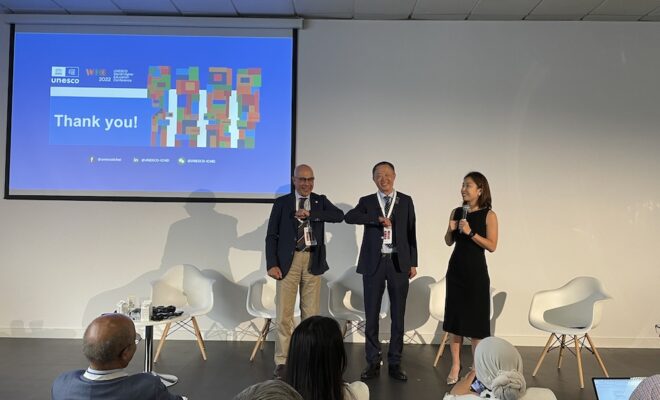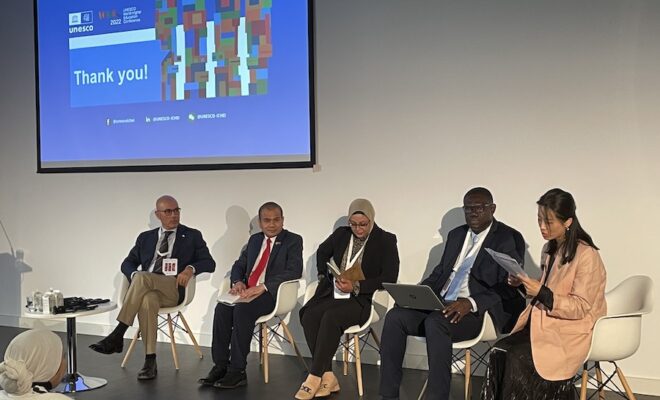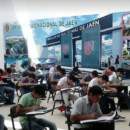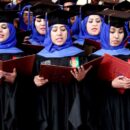The next decade of higher education in Latin America and the Caribbean

Panelists: Elena Ortiz Arias, Senior Education Associate at the Inter-American Development Bank(IADB); Ana Capilla, Director of Higher Education and Science of the Organization of Ibero-American States (OEI); Arturo Cherbowski Lask, Executive Director of Santander Universities and General Director of Universia México, and Félix García Lausín, Director of the Ibero-American Knowledge Space of the Ibero-American General Secretariat (SEGIB).
Moderator: Francesc Pedró, UNESCO IESALC Director.
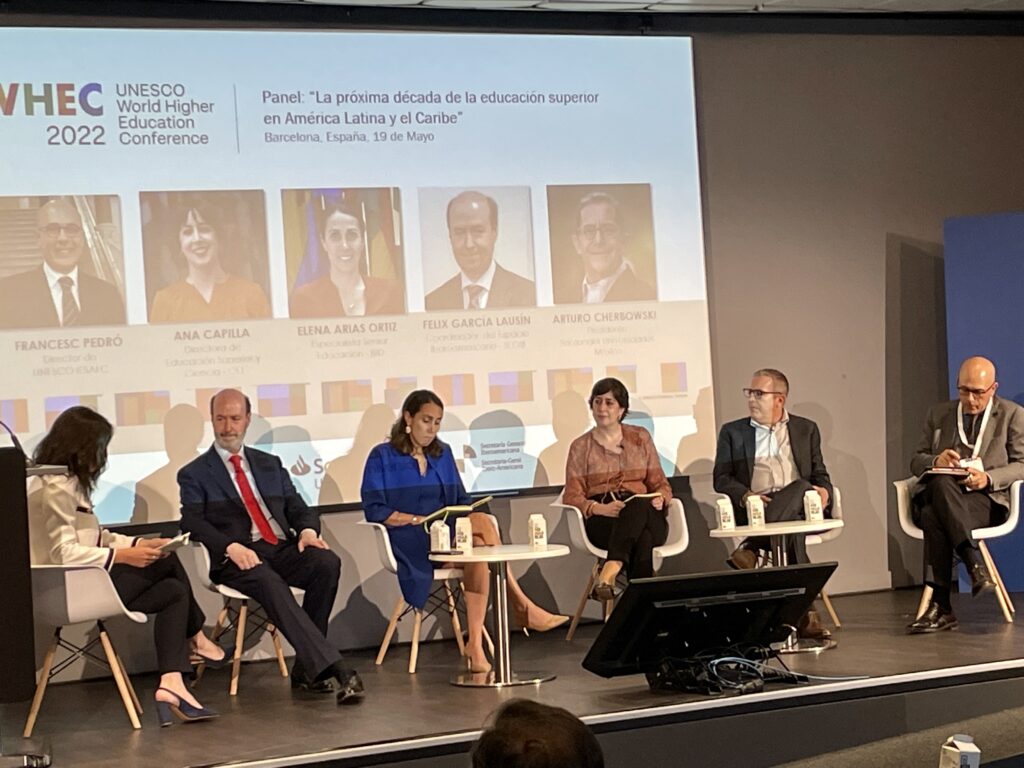
-Previous to the round table Victoria Galán-Muros and Alep Blancas presented the Regional Consultation carried out by UNESCO IESALC.
The objective of the Regional Public Consultation on Higher Education was to gather the voices of the different stakeholders related to higher education (governments, HEI leaders, academics, students, rectors’ conferences, university associations/networks, employers, multilateral organizations, etc.) in Latin America and the Caribbean on the ten themes of the Conference. 900 responses were obtained.
Activities and results:
Keypoints of Round Table
- Concerns about higher education quality persist.
- Barriers to regional student mobility persist. One of the major difficulties is not sharing the same concept of recognition of studies in the countries of the region. Uruguay is in the process of ratifying the Regional Convention.
- Hybrid mobility is increasingly present, allowing access to a more international world.
- Pending in Latin America and the Caribbean: the translation of the commitment to sustainability in the curriculum and the importance of having a framework of reference at regional level in terms of sustainability.
- Connectivity problems left many students behind.
- How can HE be made more equitable? It is necessary to think about financing strategies based on 3 major barriers faced by students access to HE: 1) Financial: demand subsidies such as scholarships, student loans, etc. 2) Academic: support in the transition from secondary to higher education with leveling courses and policies for the most vulnerable students in these transitions 3) Information and context: provide guidance and orientation for future students.
- More outreach with secondary schools is needed to support minorities and vulnerable sectors.
- Coverage needs to be improved: the pandemic has had inequitable negative effects considering the digital divide and budget trends, which will go down, which poses other challenges.
- How can we make this investment in HE more efficient and equitable? It is necessary to align common objectives, and break resistances.
- How can we complement the decrease in resources? With knowledge transfer processes that can generate alternative resources through productive research and reinvest them in the student community.
- One of the myths is that universities have been resistant to collaboration, and this is not true: there have been tensions between all actors.
- The invitation is to concentrate structural efforts in academic and political spaces that can be profitable, such as the Regional Convention for the Recognition of Studies, Degrees and Diplomas in Higher Education in Latin America and the Caribbean.
RELATED ITEMS

